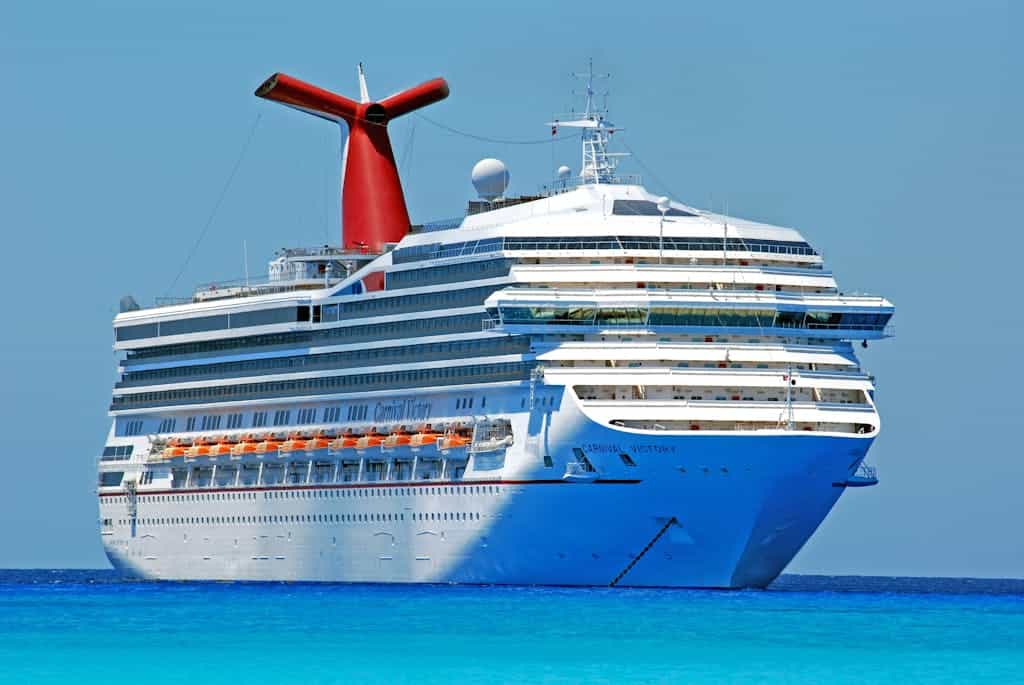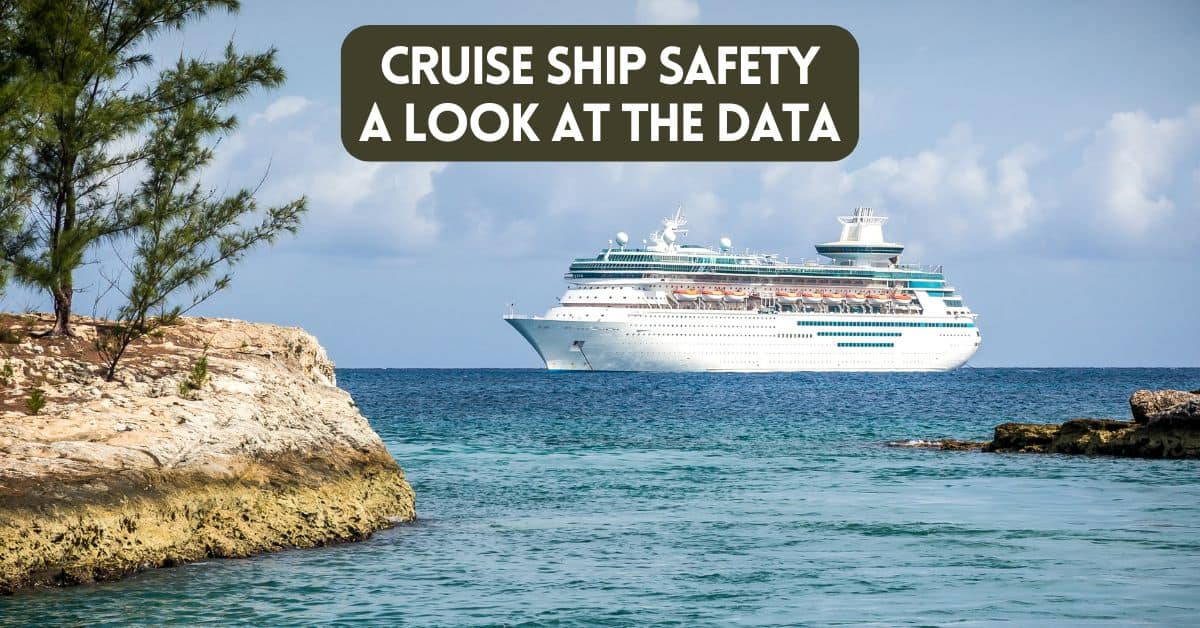Is Crime a Problem on Cruise Ships? What the Data Really Shows
Cruise vacations are often associated with relaxation, luxury, and adventure. But when headlines report brawls on board or rare incidents of serious crime, it raises a question many travelers ask: Is cruising safe? Is crime a problem on cruise ships, and does the cruise industry have a crime problem?
Let’s take a closer look at the data, regulations, and reality behind the headlines.
The Places Where We Go contains affiliate links and is a member of the Amazon Services LLC Associates Program. As an Amazon Associate, we earn from qualifying purchases at no extra cost to you when you purchase using one of these Amazon links. Read our disclaimer and privacy policy for more information.

High-Profile Incidents vs. Overall Safety
Recent news stories, such as a large brawl aboard Carnival Jubilee or an alleged murder on MSC Virtuosa, have stirred concern. But experts in the industry argue that these stories do not reflect the overall safety record of cruise travel.
According to Charles Syvia, Vice President of Industry and Trade Relations at Cruise Lines International Association (CLIA), “Cruise ships are one of the safest vacation options in the world.” He points out that serious crimes on cruise ships occur far less frequently than on land, thanks to stringent security protocols and robust industry regulations.
What the Research Says: Cruise vs. Land-Based Crime Rates
CLIA commissioned criminologist James Alan Fox of Northeastern University to conduct a comprehensive study comparing rates of serious crimes—such as homicide, sexual assault, and aggravated assault—on cruise ships and on land in the U.S. between 2016 and 2019.
Here’s what the study found (rates per 100,000 people):
- Sexual Assault:
- U.S. mainland: 63.8
- Cruise ships: 19.2
- Aggravated Assault:
- U.S. mainland: 432.2
- Cruise ships: 2.6
- Homicide:
- U.S. mainland: 11.9
- Cruise ships: 0.1
Fox concluded:
“Travel by sea aboard commercial cruise ships is exceptionally safe in terms of the risks associated with violent criminal activity.”
Mandatory Reporting and Legal Oversight
The cruise industry is governed by both U.S. and international regulations, including the Cruise Vessel Security and Safety Act (CVSSA) of 2010. This law requires cruise lines that operate in or from U.S. ports to report major crimes to the FBI, including:
- Homicide
- Suspicious deaths
- Sexual assaults
- Serious assaults
- Kidnappings
- Major thefts (over $10,000)
Cruise lines must also maintain onboard crime logs and make them available for inspection.
The FBI publishes quarterly public reports. According to their most recent data, the number of alleged incidents has remained relatively low, even as cruise travel has rebounded post-pandemic:
Number of Alleged Cruise Ship Crimes (January–March, per year):
- 2025: 48
- 2024: 47
- 2023: 32
- 2022: 17
- 2021: 1 (pandemic impact)
- 2020: 18
- 2019: 25
- 2018: 26
While any serious incident is regrettable, the data shows no dramatic upward trend and no indication of systemic safety failure.
Additional Safety Measures by Cruise Lines
Beyond mandatory reporting, CLIA member cruise lines have adopted additional safety and security practices:
- Zero-tolerance policies for criminal activity
- Youth protection protocols in kids’ clubs and activity centers
- Victim support services, including medical care and counseling
- Security personnel trained in crime prevention and emergency response
- Collaboration with international law enforcement and the ship’s flag state
Passengers are also empowered to contact law enforcement and consular authorities, regardless of where the ship is located.
Alcohol and Personal Responsibility
The FBI has noted that alcohol is a common factor in many onboard incidents. Cruise lines promote responsible drinking through staff training, drink limits in youth areas, and onboard security presence, but travelers also bear responsibility for their own behavior.
Final Thoughts: Should You Be Concerned?
Cruise vacations remain one of the safest ways to travel. The combination of low crime rates, strict laws, transparent reporting, and proactive safety measures makes cruise ships statistically safer than many cities on land.
While headline-grabbing incidents can be unsettling, they are rare exceptions, not the rule. As with any vacation, awareness and common-sense precautions go a long way toward ensuring a safe and enjoyable trip.
Tips for Staying Safe on a Cruise:
- Be aware of your surroundings
- Limit alcohol consumption
- Lock your cabin when not inside
- Report suspicious activity to ship security
- Use the in-room safe for valuables
- Review the ship’s safety procedures upon boarding
Cruising isn’t crime-free—but it is remarkably safe. The numbers speak for themselves, and the industry’s commitment to security continues to evolve in step with global standards and passenger expectations.
Thanks for visiting this page. We hope to see you at the places where we go.
Julie & Art

